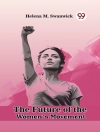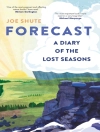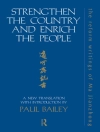Focuses critical attention once again on the nature and process of reading, taking into account both current theory and historical investigations.
Thirty years ago, when theory emerged as integral to literary studies, investigations into the nature of reading dominated academic criticism. Since then, as cultural studies and historical approaches have gained ascendancy, critical focus on reading has waned. This collection of new essays by leading scholars of German and comparative literature, inspired by the work of the long-time and influential scholar of reading Clayton Koelb, puts the study of reading back at center stage, considering current theory on reading, emotion, and affect alongside historical investigations into cultural practices of reading as they have changed over time. Topics addressed include ancient practicesof magic reading; Christian conversionary reading; the emergence of silent reading in the Middle Ages; Renaissance ekphrastic reading; homeopathy, reading and Romanticism; and German-Jewish reading cultures in the nineteenth century. The volume will be of interest to scholars and students of literary criticism, German Studies, comparative literature, and European history.
Contributors: Richard V. Benson, Stanley Corngold, Eric Downing, Darryl Gless, Ruth V. Gross, Jonathan Hess, Janice Hewlett Koelb, Alice Kuzniar, Ann Marie Rasmussen, Jeffrey L. Sammons, Gary Shapiro, Kathryn Starkey, Christopher Wild.
Eric Downing is Hanes Distinguished Term Professor of German, English, and Comparative Literature at the University of North Carolina-Chapel Hill. Jonathan M. Hess is Professor of German and Moses M. and Hannah L. Malkin Distinguished Term Professor of Jewish History and Culture at the University of North Carolina at Chapel Hill. Richard V. Benson is Visiting Assistant Professor of German at Valparaiso University.
Tabella dei contenuti
Introduction
Apertio Libri: Codex and Conversion – Christopher Wild
The Question of Reading and the Medieval Book: Reception and Manuscript Variation of Thomasin’s Welscher Gast – Kathryn Starkey
Reading in Nuremberg’s Fifteenth-Century Carnival Plays – Ann Marie Rasmussen
Shakespeare, Biblical Interpretation, and the Elusiveness of Meaning – Darryl J. Gless
Reading and the Writing of German-Jewish History – Jonathan M. Hess – DECEASED
Similia Similibus Curentur: Homeopathy and Its Magic Wand of Analogy – Alice A. Kuzniar
Reading and Rhetorical Generation: The Example of Blake’s Thel – Janice Hewlett Koelb
Sender Glatteis Reads Lessing and Comes to a Sad End: Some Thoughts on Karl Emil Franzos’s Der Pojaz and the Problem of Jewish Reading – Jeffery L. Sammons
Magic Reading – Eric Downing
‘Anything One Wants’: Kafka and Women, Again – Ruth V. Gross
Reading on the Edge of Oblivion: Virgil and Virgule in Coetzee’s Age of Iron – Gary Shapiro
Reading Experience in Faust – Stanley Corngold
Works Cited
Notes on the Contributors
Index
Circa l’autore
Professor of German and Comparative Literature at the University of Texas at Arlington












